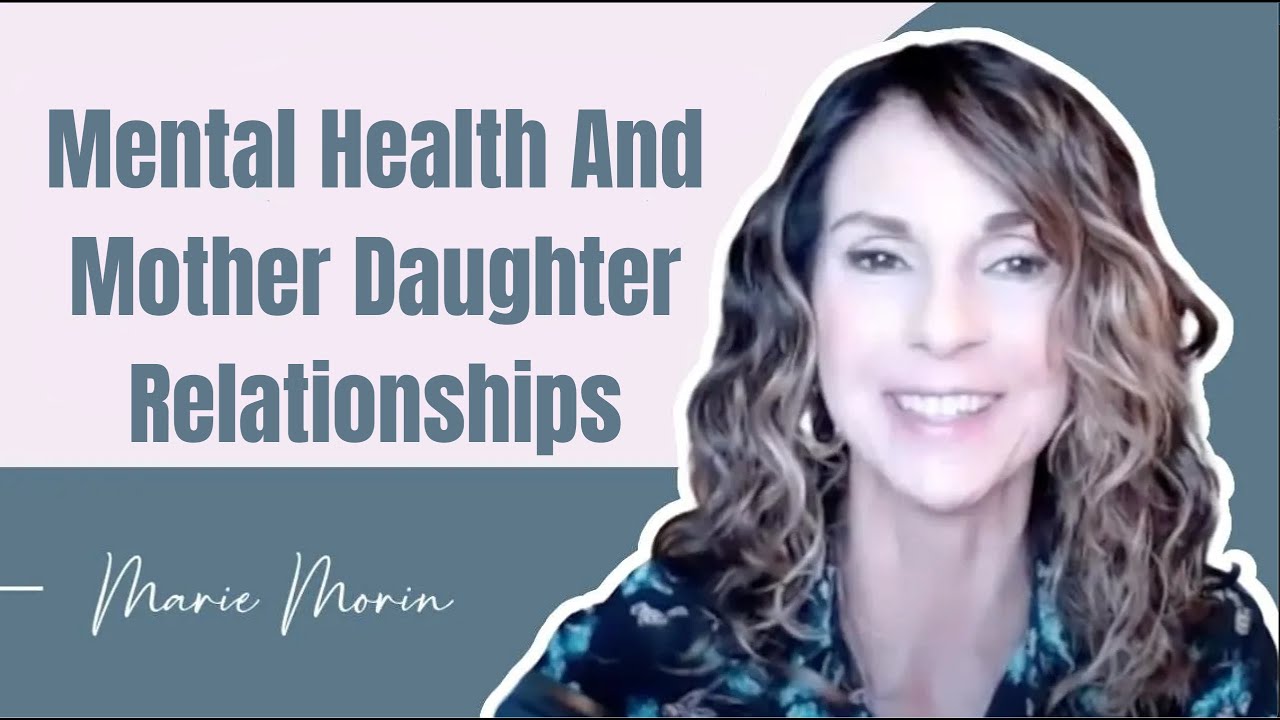The Crucial Role of Therapy for Mothers in Coping with Addiction
When a child grapples with addiction, mothers often bear a monumental emotional burden. This toll can morph into chronic stress, anxiety, depression, and an overwhelming sense of helplessness. Therapy for mothers emerges as a lifeline, guiding them through these stormy waters.
Professional guidance offers mothers a chance to develop solid coping mechanisms and build resilience. Programs like the Mothers’ Support Network and the Family Therapy Institute prioritize collective healing by working on both individual and family dynamics. Renowned therapist Esther Perel emphasizes the necessity of addressing relational trauma within families facing addiction. Through therapy, mothers can start a new chapter and foster harmony in their homes.
Support Systems in Therapy for Mothers: Real-world Examples
Effective therapy for mothers transcends the traditional one-on-one session. It includes a spectrum of support systems like group therapy, retreats, and comprehensive mental health services. Prestigious organizations such as the Betty Ford Center and the Hazelden Betty Ford Foundation offer tailored programs for families affected by addiction.
These programs often feature structured family therapy sessions and parental counseling workshops aimed at restoring communication and trust. The National Institute on Drug Abuse (NIDA) reveals that family-based therapies significantly boost outcomes for individuals battling addiction, stressing the importance of maternal participation in these therapeutic avenues. Moreover, addiction therapy often forms the cornerstone of healing for mothers facing such circumstances.
| Therapy Type | Description | Benefits | Notes |
| Family Therapy | Involves both parent and child in sessions | Enhances communication, resolves conflicts | Best for improving family dynamics and addressing mutual issues. |
| Child-Centered Play/Filial Therapy | Uses play to help children express feelings and solve problems | Enhances emotional expression and problem-solving | Effective for younger children who struggle with verbal communication. |
| Individual Counseling for Children | One-on-one sessions focused on the child’s specific needs and issues | Targets specific emotional/behavioral issues | Often coupled with other therapies for well-rounded support. |
| Cognitive Behavior Therapy (CBT) | Examines and alters distorted patterns of thinking | Improves moods, anxiety, behavior | Effective for both children and adults; teaches coping mechanisms. |
| Postpartum Depression Counseling | Addresses emotional challenges and mental health conditions related to pregnancy and childbirth | Improves mental health, reduces risk of substance use | Crucial for the 1 in 8 women experiencing postpartum depression; often overlooked and untreated. |
| Support Groups | Group sessions offering shared experiences and mutual support | Reduces feelings of isolation, fosters community | Encouragement and reassurance from peers; celebrating milestones and small victories together. |
Personal Stories: How Therapy Changed Their Lives
Jane Doe’s Journey: From Despair to Empowerment
Jane Doe, a mother from Chicago, shares her powerful transformation. Her teen son, Michael, became ensnared by opioids, leading Jane into a severe depression spiral. Enrolling in a therapeutic program at the Betty Ford Center wasn’t just crucial for Michael but also provided Jane with the healing and support she desperately needed. With cognitive-behavioral therapy and group sessions, Jane learned emotional regulation and built a supportive network. Today, Jane volunteers at the center, helping other mothers tackle similar hurdles. This shift underscores how therapy can truly change the lives of mothers who once felt lost.
Sarah Thompson’s Healing Through Family Therapy
Sarah Thompson, hailing from Seattle, recounts how family therapy salvaged her family from the brink of collapse. Her daughter Rachel’s addiction was pulling the family apart when Sarah sought help at the Family Therapy Institute. The collaborative approach addressed Rachel’s addiction while helping Sarah and her husband manage feelings of guilt and anger. Family therapy sessions mended fractured relationships and created a supportive environment for Rachel’s recovery. Sarah’s story highlights the role of family therapy in restoring balance and emotional health within families.
Innovative Approaches in Therapy for Mothers
The landscape of therapy for mothers is evolving, with innovative methods emerging from continued research and clinical practice. Key advancements include:
Practical Tips for Mothers Seeking Therapy
If you’re considering therapy, here are some practical steps:
Empowering Mothers, Transforming Lives
Therapy for mothers is a transformative journey that not only impacts their well-being but also significantly enhances their children’s recovery prospects. By seeking professional help, engaging in supportive communities, and embracing self-care practices, mothers can find the strength to navigate this challenging path. Remember, your resilience and willingness to heal can set the foundation for your family’s recovery and growth. Your strength is the catalyst for change, and you are not alone in this journey.
For more information and resources, visit Mothers Against addiction. Learn more about the path to emotional recovery and start a new chapter filled with hope and support.
By embodying therapy for mothers, we lay the groundwork for a supportive, thriving future, resonating with the spirit of Brené Brown’s compassion and Elizabeth Vargas’s resilience.
Therapy for Mothers: Life-Changing Support
The Power of Therapy
Therapy for mothers, especially those coping with their children’s addiction or loss, offers invaluable emotional support. Struggling with trauma is unfortunately common, and understanding the connection between trauma And addiction in Mothers can be eye-opening. It’s crucial to realize that these brave women often juggle myriad responsibilities, all while maintaining a nurturing environment at home. Engage with trivia, like knowing that the famed Kaede Akamatsu once inspired many with her emotional resilience, reminding us that support systems are vital for emotional well-being.
Fascinating Facts on Therapy
Did you know that humor and light-heartedness can significantly boost therapy effectiveness? Even the legendary Zeppo Marx, though known for his comedic roles, understood the importance of emotional support. His life underscores how laughter and professional guidance can act as a balm to a weary soul. On another note, financial stability often creates a safe harbor for emotional recovery. Understanding capital Gains rate can relieve some financial stress, allowing mothers to focus on their emotional healing journey.
Fun and Support Go Hand-in-Hand
Interestingly, some common financial concerns, like What Is The interest rate on Mortgages, can affect a mother’s stress levels. Emotional support For Mothers is holistic; encompassing both emotional and practical aspects of life. By addressing every facet, from administrative burdens to deep-seated traumas, therapy transforms lives. The blend of practical advice and emotional care forms a robust support system, empowering mothers to heal and thrive in the face of adversity.
By weaving together therapy, trivia, and interesting facts, mothers find not just solace but strength. Therapy for mothers isn’t simply about addressing immediate emotional needs; it’s a well-rounded, life-affirming support essential for rebuilding and resilience.

What therapy is best for parenting?
Several forms of counseling may benefit parents when facing challenging situations or dealing with difficult emotions related to their children. Parents might seek family therapy sessions that involve both the parent and child, or they can look into individual counseling or child-centered play therapy for their kids.
What are the mental disorders of mothers?
Maternal mental health conditions, such as depression, anxiety, and substance use disorder, are quite common. According to the CDC, 1 in 8 women experience postpartum depression, and about 50% of these cases go untreated. These issues can significantly impact the well-being of mothers during pregnancy, childbirth, and the postpartum period.
How can I emotionally support my mother?
Providing emotional support to your mother involves encouragement, affirmation, and reassurance. It’s important to let her know she’s not alone and that you’re there for her every step of the way. Celebrating her small victories and milestones can make a big difference in making her feel supported.
What type of therapy is best for children?
Cognitive Behavior Therapy (CBT) is great for kids dealing with mood swings, anxiety, or behavior issues. This type of therapy targets confused or distorted thinking patterns, teaching kids that their thoughts influence their feelings and actions. Through CBT, children learn to identify and change harmful thought patterns.
What is a good enough mother psychotherapy?
The concept of a “good enough” mother in psychotherapy refers to a mother who is attuned to her child’s needs, providing adequate care, and emotional support, yet is not perfect. This idea emphasizes that it’s okay for parents to make mistakes as long as they provide a generally nurturing environment.
Can therapy help with toxic parents?
Therapy can indeed help in dealing with toxic parents. It offers a safe space to explore family dynamics and personal experiences and learn strategies to set boundaries and manage emotional stress. Therapies like CBT or family therapy can be particularly effective.
What is emotional trauma from the mother?
Emotional trauma from a mother usually stems from experiences like neglect, abuse, or emotional unavailability. It can result in long-lasting emotional and psychological effects, impacting self-esteem, trust, and relationships.
How do you deal with a mentally unstable mother?
Dealing with a mentally unstable mother involves setting clear boundaries, seeking professional help, and making sure you also support your own mental health. It’s important to balance empathy with taking steps to protect your own well-being.
What is the most common mental illness in parents?
Anxiety disorders and depression are the most common mental illnesses in parents. These conditions can affect both their emotional well-being and their ability to care for their children.
What do mothers struggle with the most?
Many mothers struggle with feeling isolated, overwhelmed, and dealing with societal pressures to be perfect. Mental health issues like postpartum depression and anxiety also significantly impact many mothers.
Why do I feel no connection to my mother?
Feeling no connection to your mother might stem from unresolved conflicts, emotional distance, or past traumatic experiences. It’s important to explore these feelings, possibly with the help of a therapist, to understand their roots and find a way to address them.
How do you heal an emotionally immature mother?
Healing an emotionally immature mother often requires setting boundaries, practicing empathy, and sometimes seeking professional family therapy. It’s essential to focus on your own emotional health while dealing with her behavior.
What is Gestalt therapy?
Gestalt therapy is a form of psychotherapy that emphasizes personal responsibility and focuses on the individual’s experience in the present moment. It helps clients gain awareness of their thoughts, feelings, and actions and understand how these influence their current life situations and relationships.
What is parent behavior therapy?
Parent behavior therapy focuses on teaching parents effective strategies for managing their child’s behavior. It often involves helping parents understand the reasons behind their child’s actions and learning positive reinforcement techniques.
What is the best trauma therapy for children?
The best trauma therapy for children often involves therapies like Trauma-Focused Cognitive Behavioral Therapy (TF-CBT) or play therapy. These approaches help children process and heal from traumatic experiences in a safe, supportive environment.
What is the most effective parenting method?
The most effective parenting method varies, but positive reinforcement, consistency, and open communication are often highlighted. Approaches like authoritative parenting, which balances warmth and structure, are generally considered effective.
What is the most effective family therapy?
Family therapy, especially Structural Family Therapy or Bowenian Family Therapy, is often seen as highly effective. These therapies help families understand their dynamics and work through conflicts, improving overall communication and relationships.
What is the therapeutic approach to parenting?
In a therapeutic approach to parenting, professionals focus on understanding and addressing the emotional needs and well-being of both the parent and the child. It involves strategies like active listening, empathetic understanding, and positive reinforcement.
What is the best therapy for childhood issues?
The best therapy for childhood issues often includes Cognitive Behavioral Therapy (CBT). It helps children understand and manage their emotions by changing harmful thinking patterns and behaviors. Play therapy is also effective for younger kids.




























